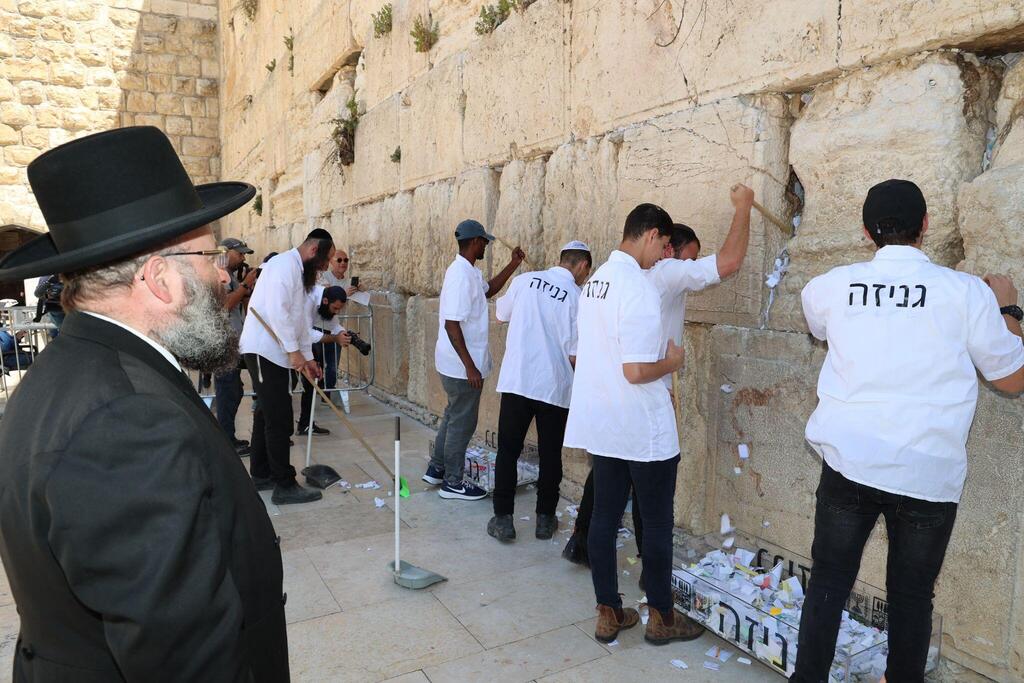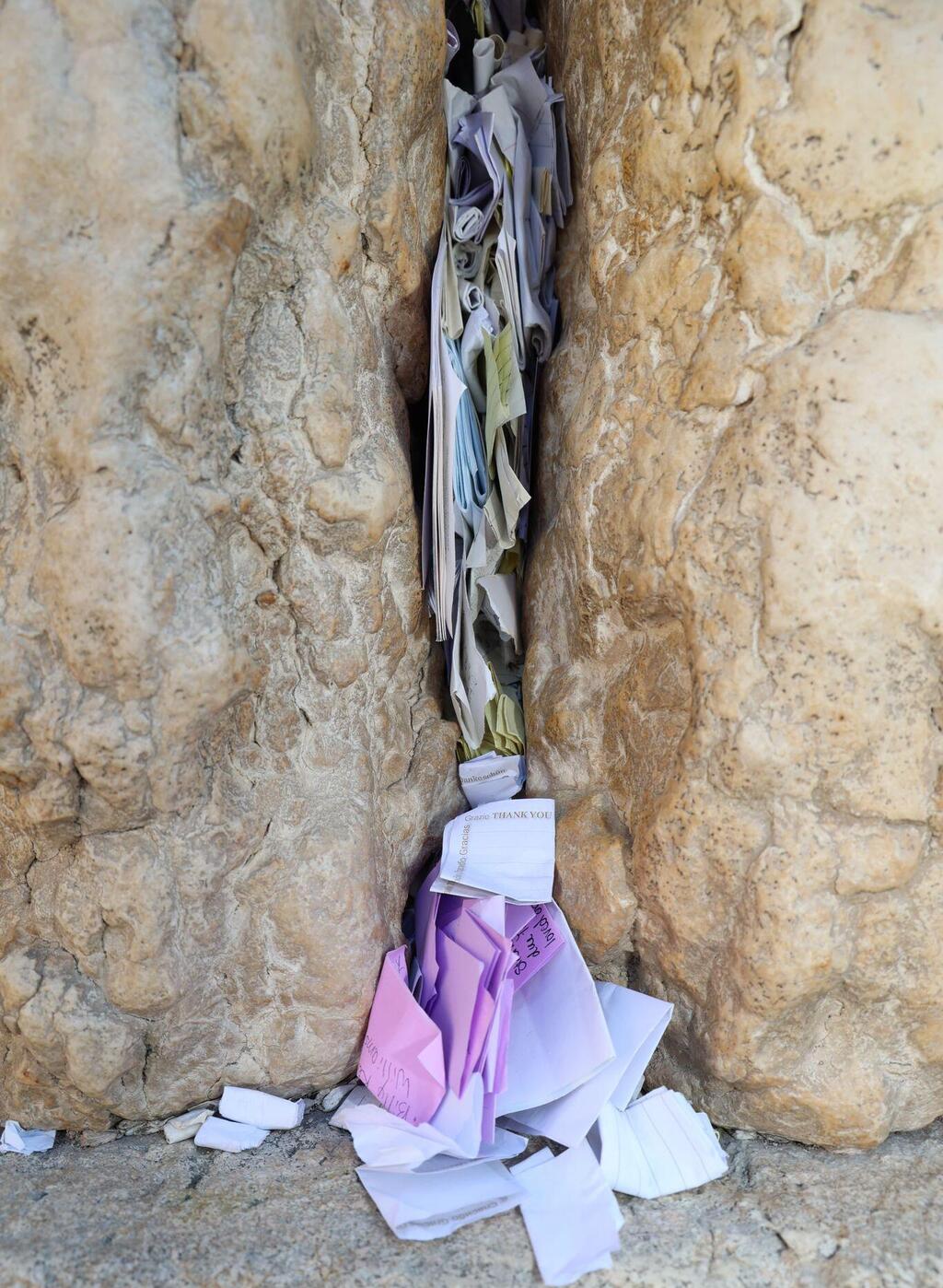Getting your Trinity Audio player ready...
The Western Wall underwent its yearly Passover cleaning on Tuesday. The special pre-holiday cleaning was not meant to remove hametz from the wall's ancient stones, but to clear out the thousands of notes and prayers placed between its stones over the past six months, to make way for the notes of more visitors.
The notes are collected and transferred to an area designated as genizah, a storage place for sacred texts.
2 View gallery


Rabbi Shmuel Rabinowitz, the rabbi of the Western Wall, oversees the clearing of notes from the Western Wall
(Photo: Western Wall Heritage Foundation)
The Western Wall Heritage Foundation oversees the clearing, which is carried out according to halachic (Jewish law) guidelines using gloves and disposable wooden tools.
The purpose of the clearing is to make space for new notes from visitors expected to arrive at the Western Wall in the coming months, as well as prayer notes sent from countries around the world. The notes were collected in bags and will be buried together with worn-out sacred books in a designated genizah. Rabbi Shmuel Rabinowitz, the rabbi of the Western Wall and other holy sites, personally oversees the clearing each year, while offering prayers for unity among the Jewish people and for the thousands who have brought their prayers.
Cleaning notes out of the Western Wall
(קרדיט: הקרן למורשת הכותל המערבי)
The custom of placing notes in the Western Wall has been documented for nearly three hundred years. Prayer notes are placed throughout the length of the Western Wall and can also be found between the stones exposed in the Western Wall Tunnels.
The Western Wall Heritage Foundation notes that an average of 3,000 notes are sent each month through the foundation's website, to be printed and inserted between the wall's stones, in addition to the hundreds of thousands of notes personally placed by visitors. In the past year, about 100,000 notes were sent via the Foundation's website from various countries around the world, including the United States, Slovakia, Brazil, South America, Colombia, Germany, the Netherlands, Canada, England, Russia, Venezuela, Ukraine, India, Mexico, Argentina and Taiwan.
2 View gallery


Notes and prayers clog the spaces between the stones of the Western Wall
(Photo: Western Wall Heritage Foundation)
Notes are sent to the Western Wall throughout the year, each note with its own story. In the past six months, since October 7, in addition to the thousands of visitors who came to the Western Wall and placed notes, many notes were also sent via the website from Israel and around the world by IDF soldiers, security forces, the wounded, families of hostages, bereaved families and medical teams.
Despite a decrease in the number of tourists since the Sukkot holiday, the number of notes placed by Israelis and sent from various locations around the country has increased, according to the Western Wall Heritage Foundation.




